Netflix launched its site 25 years ago. These are the company's biggest moments since
From mail-in DVDs to endless streaming, it's been an eventful quarter-century for Reed Hastings & Co
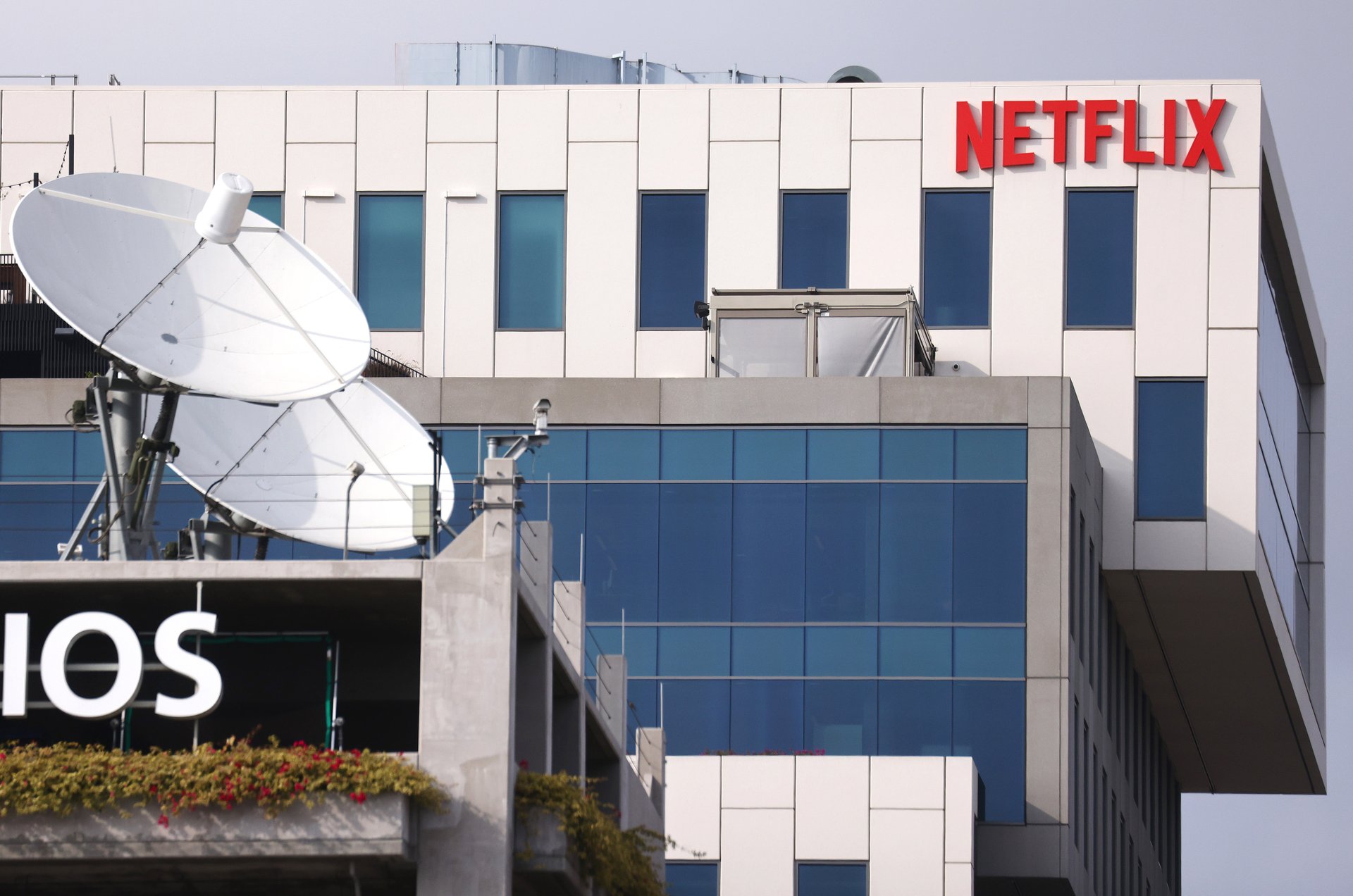
Netflix sold its first subscription 25 years ago. It was a major milestone for the company, which had been founded the previous year. But back then, Netflix looked a whole lot different. See how it evolved from a mail-order DVD business to a global streaming giant.
2 / 10
Humble beginnings
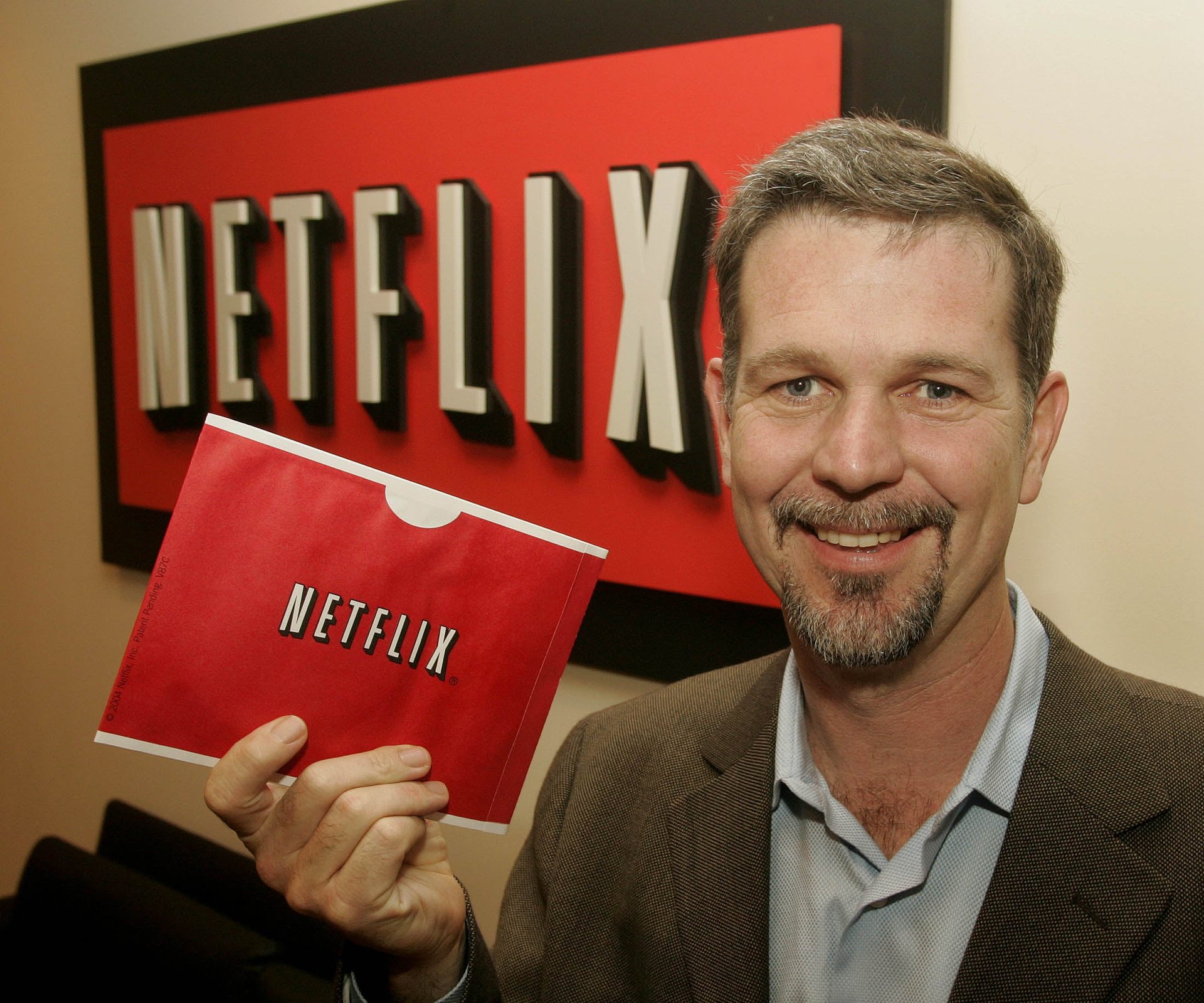
NetFlix.com is launched on April 14, 1998, by Reed Hastings and Marc Randolph as a direct-to-consumer DVD mail subscription service. The pair first considers shipping VHS tapes, but found them too expensive to stock and too delicate to ship. Then, they discover the DVD, first launched in the US in 1997.
Eight months later, Beetlejuice is the first DVD mailed to a subscriber by Netflix. Interestingly, it was mailed in a white envelope, not Netflix’s iconic red.
3 / 10
Netflix declares an IPO
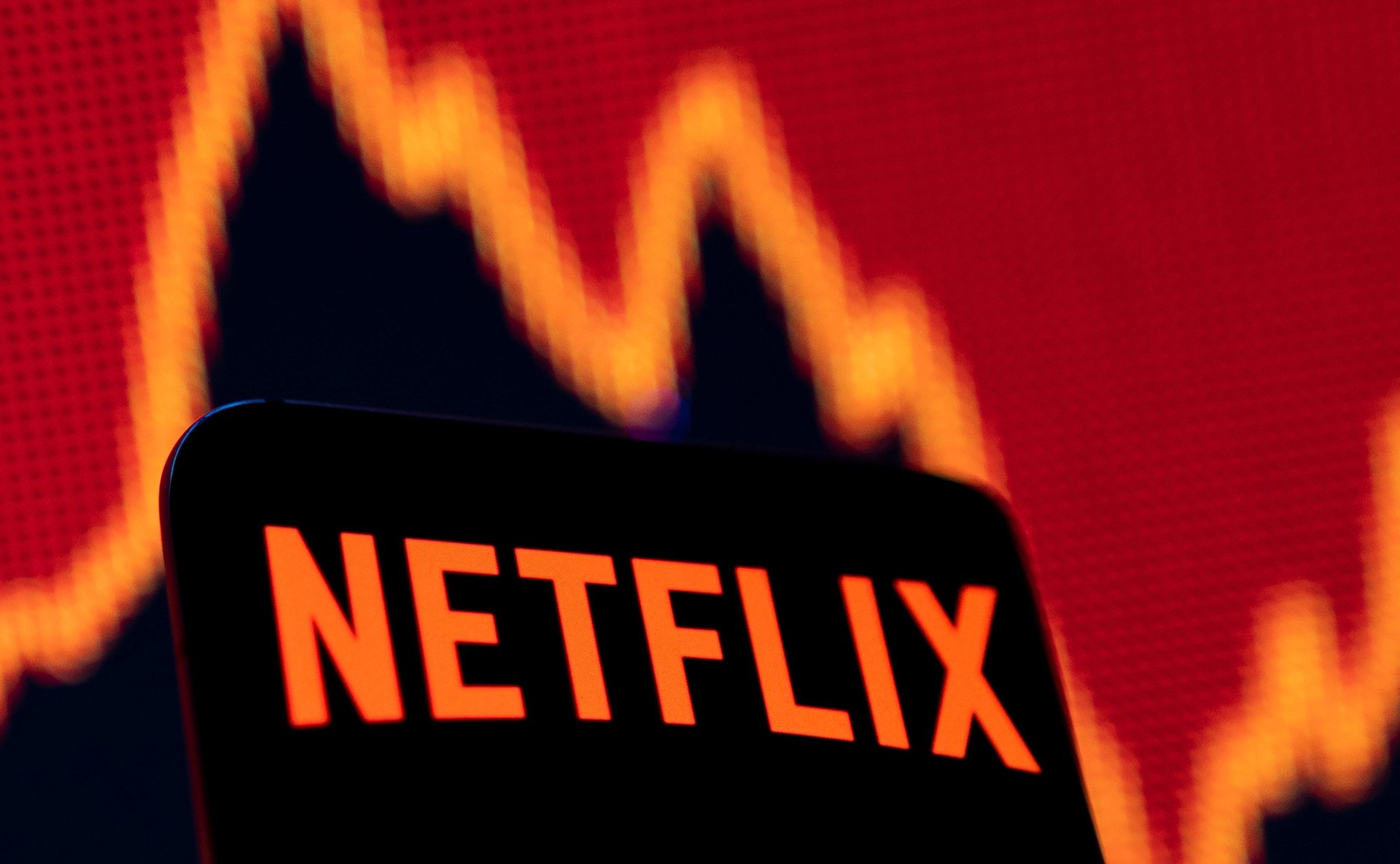
Netflix went public on May 22, 2002, offering 5.5 million shares at $15 apiece. More than 20 years later, Netflix stock—which has split several times—is at $338, down from an all-time high of $691 in 2021.
Netflix declared an IPO long before it had developed online streaming, by far the most valuable part of the business. When it first went public, the company was a DVD rental service, and its ceiling was considered comparable to Blockbuster. Case in point: When Netflix went public, the service had 600,000 subscribers. Now, it has over 230 million.
4 / 10
Digital trailblazer
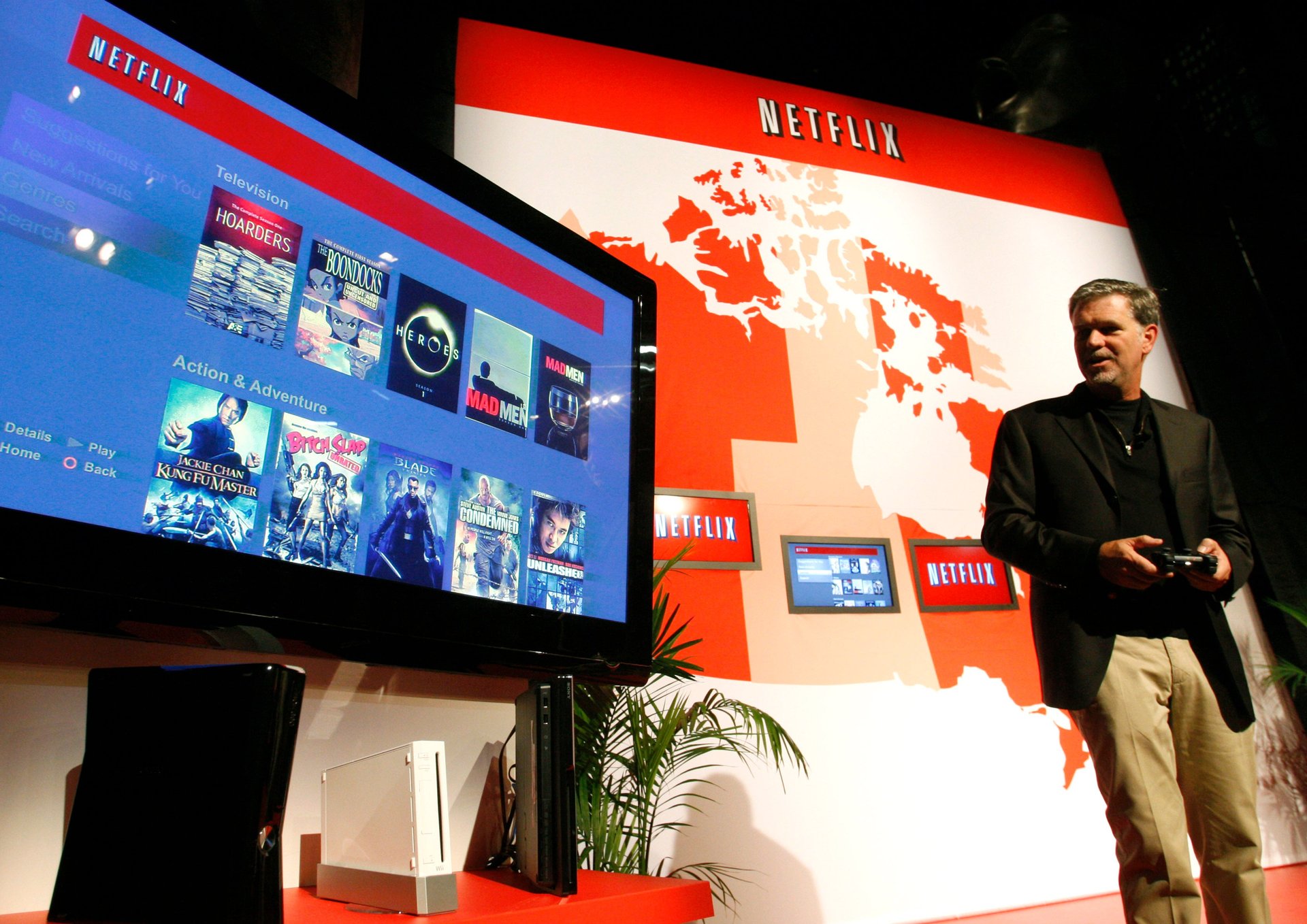
Netflix online streaming came in January 2007, bringing video-on-demand to a wider audience. Until that point, the website was simply a way for consumers to order DVDs, as there was no streaming video on the internet yet.
At the streaming site’s launch, there were only 1,000 movies available, compared to 70,000 available via DVD.
The site had first been envisioned as a place where consumers could download movies overnight, ready to watch the next day. But with an improvement in internet speeds, the first iteration of modern Netflix was born.
5 / 10
The demise of Blockbuster
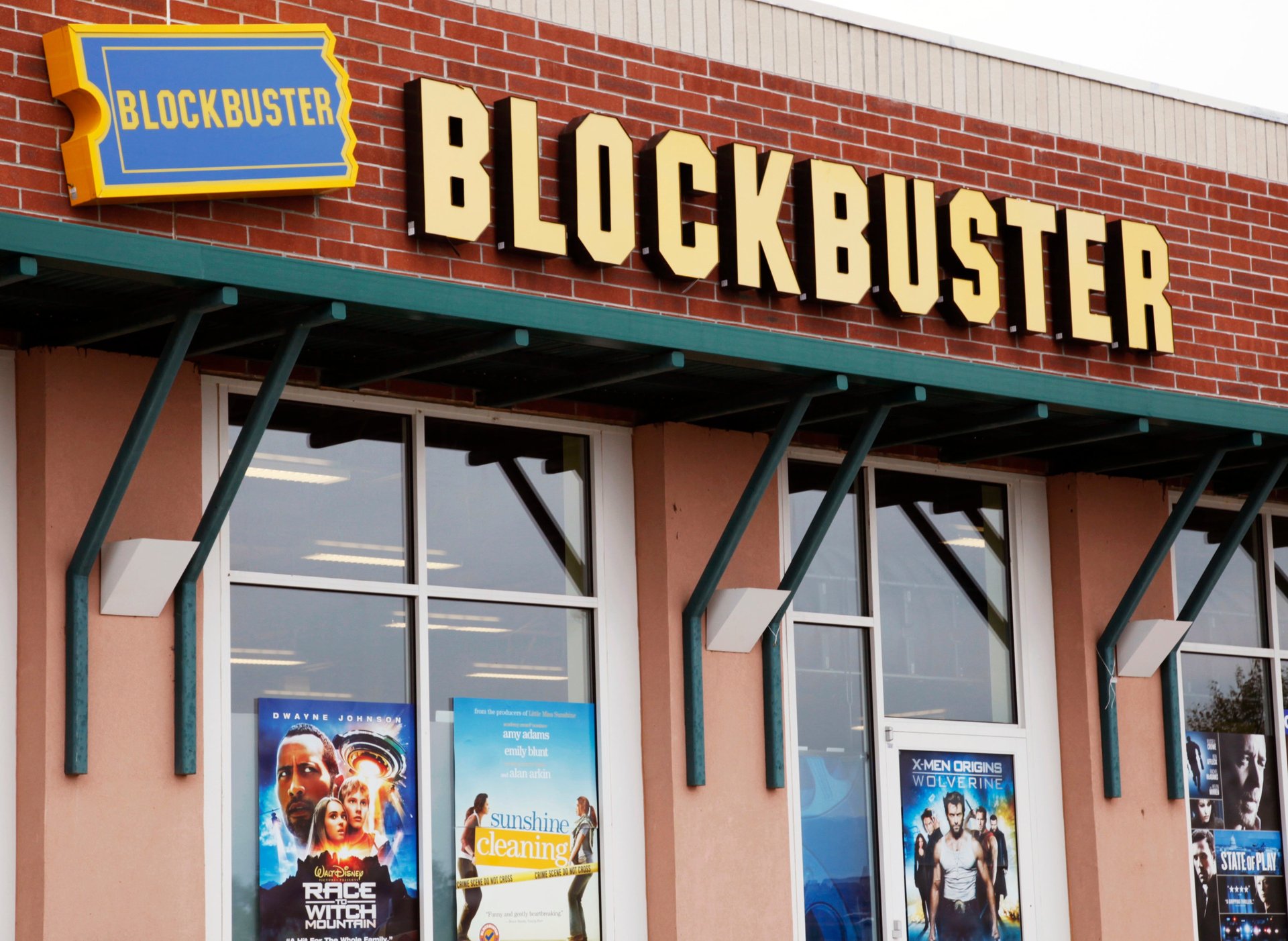
Co-founder Reed Hastings, now the executive chairman of Netflix, is often quoted as saying he decided to invent Netflix after being charged $40 in late fees for failing to return a copy of Apollo 13. In the end, he got his revenge when Netflix helped drive Blockbuster into bankruptcy on September 23, 2010.
Fun fact: Netflix, still in its infancy when the dot-com bubble hit, faced mounting losses in 2000 and approached Blockbuster about a $50 million acquisition. Reportedly, John Antioco, then CEO of Blockbuster, thought their proposal was a joke.
6 / 10
The original content juggernaut

By 2011, Netflix announced it would separate its mailing service from its online streaming, setting the monthly subscription fee at $7.99 for either service.
That decision coincided with a decision to start producing original content. In March 2011, Netflix bought the production rights to House of Cards. The political drama would premiere in 2013 and become a major hit for the platform.
By the end of 2011, Netflix also had purchased rights to a new season of Arrested Development and the original TV series Orange is the New Black, heavily investing in a pivot to original programming.
7 / 10
Worldwide expansion
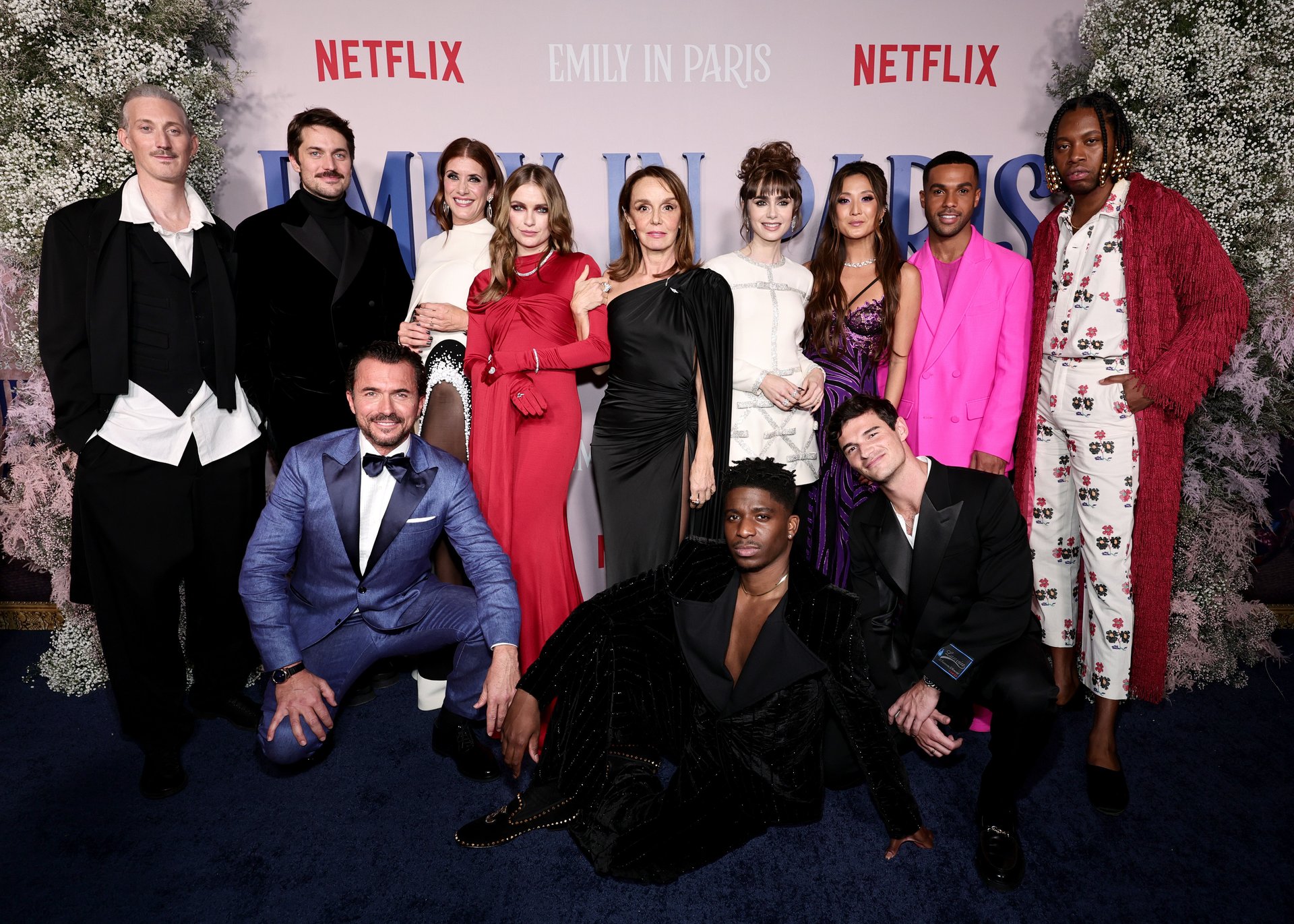
On Jan. 6, 2016, Netflix announced a simultaneous expansion into 130 countries. The exceptions? China, North Korea, and Syria.
The aggressive ramp-up marked a high point in Netflix’s growth, with subscriber numbers jumping from about 60 million in 2015 to almost 100 million in 2017.
Now, seven years later, Netflix is still not available to stream in China—one of the world’s most coveted entertainment markets—despite lobbying the Chinese government for a licensing deal.
8 / 10
“Stranger Things” and “Squid Game”
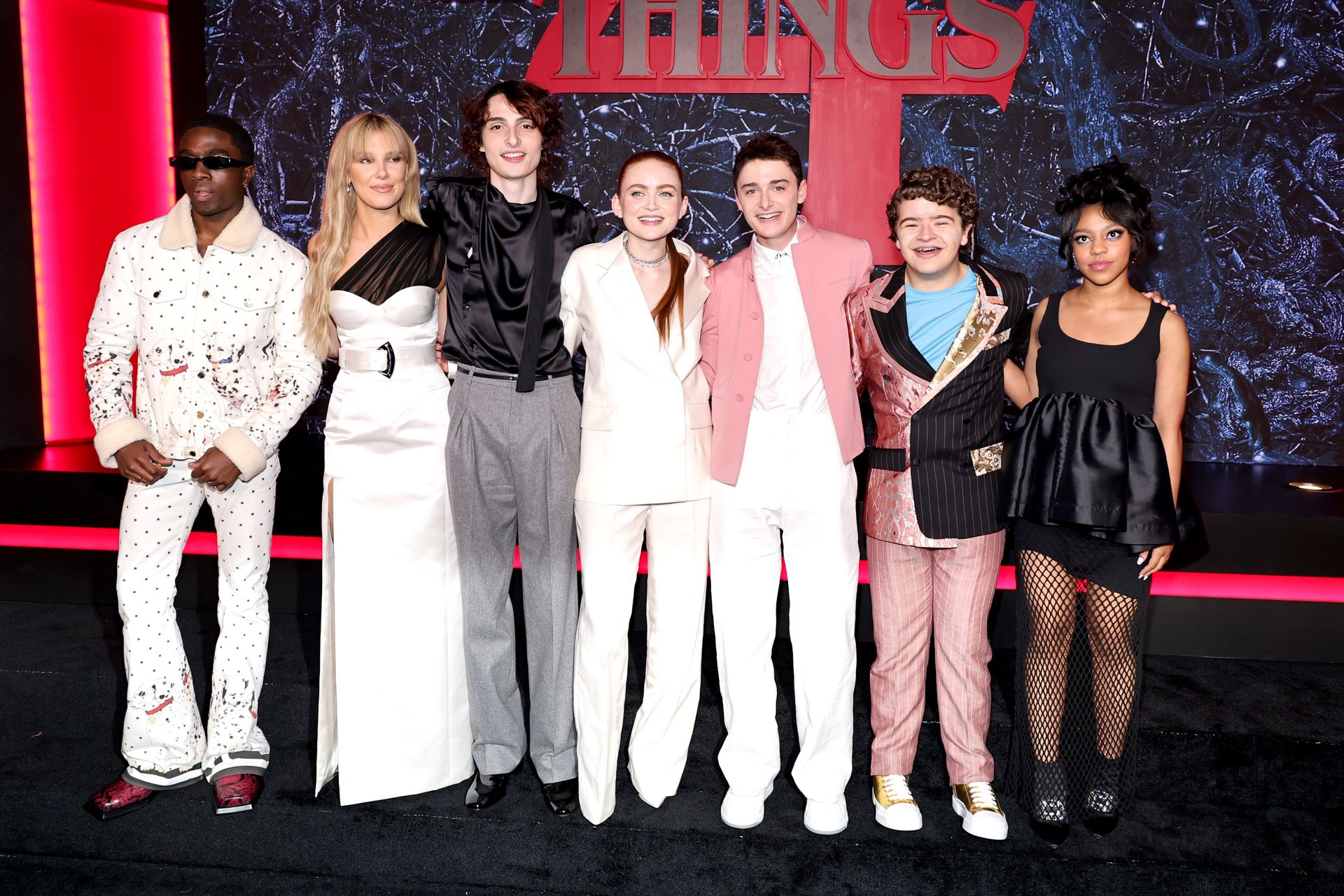
Netflix’s first mega-hit came in July 2016 with Stranger Things, a science fiction horror drama that went viral, launching an upcoming spin-off and the career of Millie Bobby Brown. The show has run four seasons and has been nominated for 10 Emmys.
Then, in September 2021, Netflix found its biggest show yet with Squid Game, a horror drama produced in South Korea. The show garnered 1.6 billion hours worth of views in the first 28 days it was available, solidifying Netflix’s status as the most popular streaming service in the world.
9 / 10
First subscriber losses
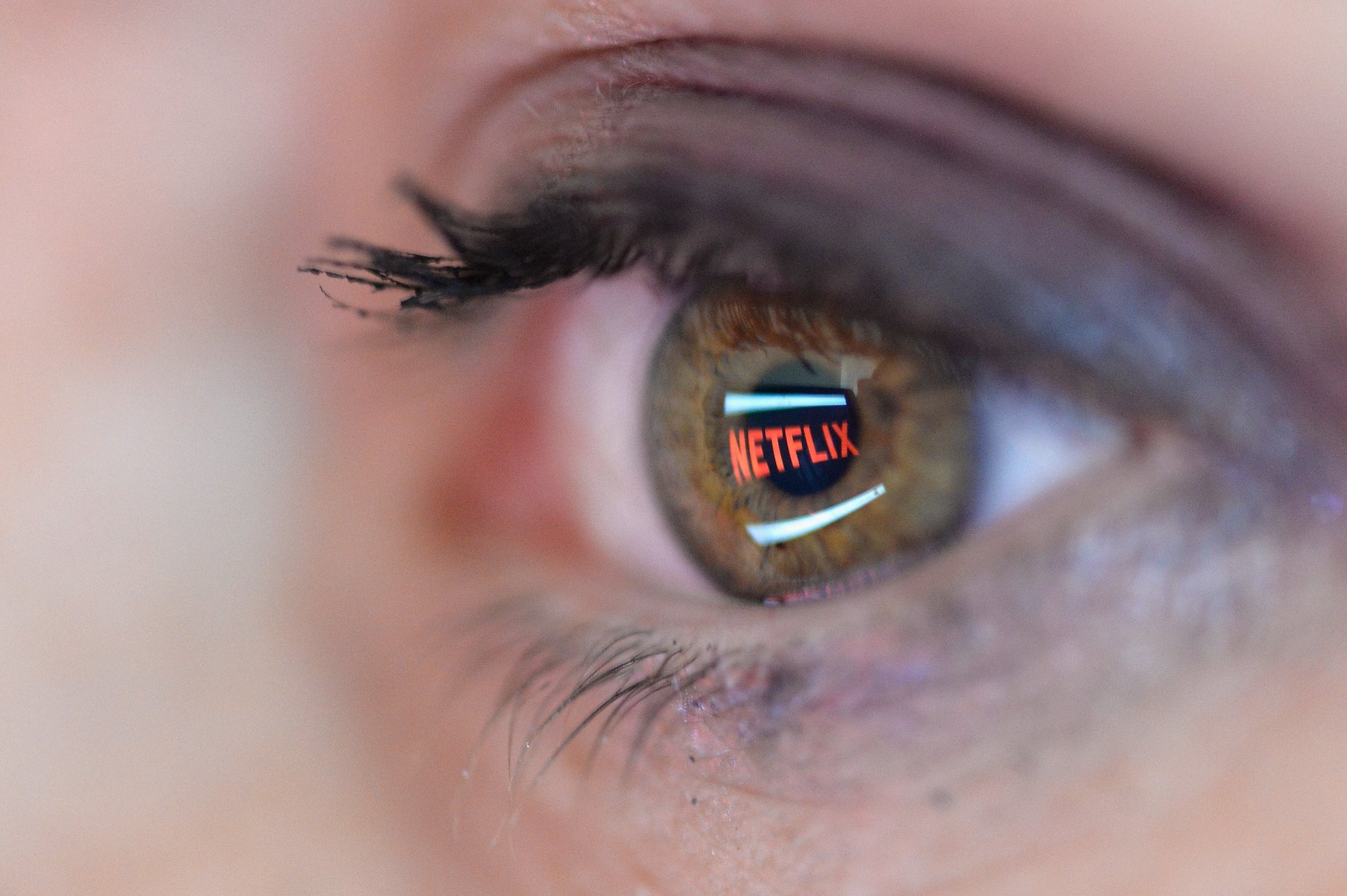
Netflix announced it lost almost 200,000 subscribers between January and April of 2022, its first decline in more than a decade.
The bad news got worse as the year went on. Between April and July 2022, the service lost 1 million more subscribers, reducing revenue and forcing Hastings to consider an ad-supported tier for the first time in company history.
10 / 10
Awards season: When it rains, it pours

With the proliferation of original streaming content at the site, and a quickly growing budget to match, Netflix began to attract award-winning filmmakers like Martin Scorsese, Guillermo Del Toro, and Alfonso Cuaron.
Now, just 10 years after Netflix debuted its first original content, the streaming site has produced eight films nominated for best picture at the Academy Awards. Two of those films—Roma and The Power of the Dog—won for best director.
Meanwhile, Netflix has been dominant in awards for the small screen. In 2021, it won more Emmy awards than any other network or streaming service for the first time ever, bringing home 44 trophies. In fact, it won more than double its closest competitor (HBO) that year. In 2022, Netflix won 26 Emmy awards, including six for Squid Game and five for Stranger Things. Another Netflix hit, The Crown, has won the most Emmy awards of any Netflix show, with 21 wins in 62 nominations.